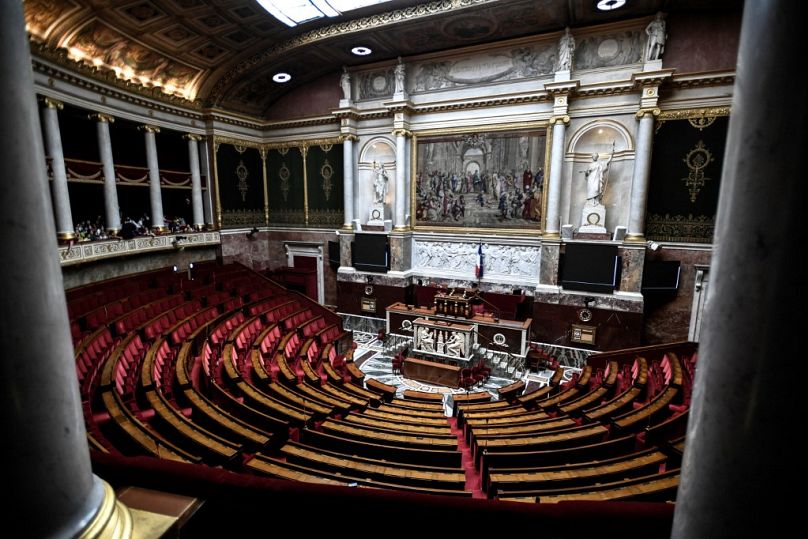This year the legislative elections are on 12 and 19 June. Voters are selecting the 577 MPs who will sit in the National Assembly for a five-year term.
Voters in mainland France will head to the polls on Sunday for the first round of the country's parliamentary elections, before a second round a week later.
It comes after Emmanuel Macron won a second five-year term as France's president in April.
But the centrist pro-European needs to win a majority in parliament to have the best chance of pushing through his policies.
That ambition remains in the balance. Polls show his centrist Ensemble coalition is only slightly ahead of its main left-wing rival, the NUPES bloc led by hard-left veteran Jean-Luc Melenchon.
The president's coalition is expected to win between 275 and 315 seats in France's parliament, according to the Ipsos/Cevipof poll, whereas 289 seats are needed for an absolute majority.
Macron will be hoping he does not become the first president since 2002 to have to deal with "cohabitation" -- a situation in which the prime minister is not on the same political side and the president does not have a majority in the assembly.
How does it work?
The election will see 577 députés or MPs elected to the Assemblée Nationale for a five-year term.
In the first round of voting on Sunday, 12 June, a candidate needs to get more than 50% of the vote to be elected.
If no one reaches this threshold, it goes to a second round of voting (Sunday, 19 June). That will see anyone that won more than 12.5% of the vote share in the first round face off against each other. Whoever wins the most votes is elected.
There are set to be 6,293 candidates at the starting line on 12 June -- which works out as nearly 11 candidates per constituency on average. Of these, 55.8% are men (or 3,514 candidates), and 44.2% are women (2,779 candidates).
What does the line-up look like?
Macron's party and his allies run under the banner of the centrist Ensemble alliance.
It is made up of three main parties -- Macron’s La République En Marche!, Mouvement Démocrate and Horizons -- along with four smaller ones.
Macron enjoyed a majority during his first term as president, but this time he and the coalition Ensemble will have to fight to maintain this.
Melenchon's La France Insoumise is in a coalition with socialists, greens and communists in an unexpected show of unity on the left.
His NUPES alliance is second in polls and did well in early voting among overseas voters. But NUPES is a fragile coalition with differences on some key issues, such as the use of nuclear power and the relationship with NATO and the EU.
Les Republicains are eyeing being the third biggest parliamentary group. Though the conservatives are forecast to be well behind Macron's camp and the left, they could become kingmakers if Ensemble has the largest group but not an absolute majority.
Marine Le Pen's far-right Rassemblement National is polling third in terms of first-round votes, but fourth in terms of projected seats.
How does France's parliament work?
Once voted in, the deputies hold power along with the upper house (Senate) to make laws and control the government.
If there is a disagreement on the text of law with the upper house, currently dominated by the right, it is the MPs who have the last word.
They can also table bills and amendments, or examine government bills.
Parliamentarians control the action of the government through oral or written questions, commissions of inquiry or missions of information.
The main weapon of the deputies is the motion of censure against the government, which is subject to very specific rules.
To bring down the government, it must be passed by an absolute majority, or at least 289 votes.
Who can vote in French elections?
To be able to vote, you must:
- be of French nationality;
- be 18 or older;
- registered on the electoral list (according to the National Institute of Statistics and Economic Studies, 48.7 million voters are registered.



